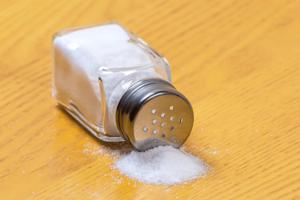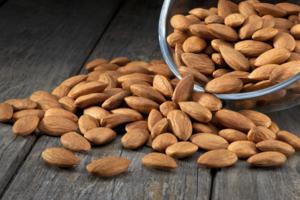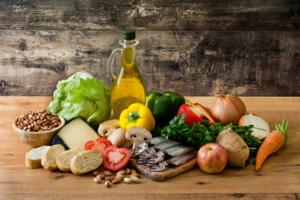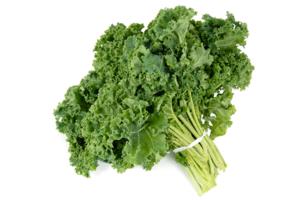Health Advice
/Health

On Nutrition: Learning from plants
A young friend of ours, an emergency room nurse, was staying at our home for a few days when we were out of town. I nonchalantly asked her to give my plants a little water if they felt dry.
She almost had an anxiety attack. “I’m much better at keeping people alive than plants,” she confessed.
That encounter reminded me of a commercial I ...Read more

On Nutrition: The battle against MS
We just returned from a reunion in Idaho with some of my closest cousins and their families. One especially poignant visit was with my cousin who is fighting a rare form of multiple sclerosis called “progressive MS.” In spite of it all, she remains as beautiful and spunky as she was in our younger years.
While there is currently no cure for...Read more

On Nutrition: America's food
When our recent road trip across three states concluded, a stockpile of random popcorn kernels littered the floor of our vehicle. It happens every time we take a long trip. And it probably won’t change, especially since it’s a food that got its origins in the Americas.
According to information from USDA’s National Agricultural Library, ...Read more

On Nutrition: Don't miss the fine print on weight-loss drugs
I hear a lot of talk around our small town when someone becomes noticeably thinner. “He sure has lost a lot of weight.” “Did she have weight loss surgery?” “I hope he’s not sick.”
What seems to be getting the most attention lately, however, are the number of people who have lost weight with certain medications. And the most ...Read more

On Nutrition: Processed or ultra-processed?
When I hear the term “ultra-processed” food, my mind goes directly to what I see in most convenience stores. Sodas, energy drinks, candy bars, pastries and cheese puffs come to mind. These items contain more than their fair share of sugar and/or salt and are sorely lacking in essential nutrients such as protein, vitamins, minerals and ...Read more

On Nutrition: The power of food on mood
We were driving through a small (as in 158 people) town in the far northwestern corner of Colorado when I saw something that made me smile. Several yards from a small farmhouse, a white wooden container was perched on a stand about as high as a mailbox. It had three sides and was open in the front. Out of the elements and neatly placed inside ...Read more

On Nutrition: Sugar from zero to 50
I just survived a grueling 24 hours existing on nothing but clear liquids — tea, broth, jello, apple juice and the like. It didn’t kill me but let’s just say the nourishment in these foods didn’t last long. My suffering body was thankful, however, for the small amount of energy derived from the little bit of sugar in some of these foods....Read more

On Nutrition: The science of salt
I have a weird habit of checking out food labels; it goes with the job. This one really grabbed my attention. It was on an electrolyte beverage and stated its case for the 1,000 milligrams of sodium in each 16-ounce can.
“Welcome to the Salty Rebellion,” the label reads. “The latest science reveals we’ve misunderstood salt. Electrolytes...Read more

On Nutrition: More on oxalates
A recent column on oxalates — natural components in plant foods that, when consumed in excess, can interfere with calcium absorption and contribute to kidney stones — brought these questions from readers:
“Thanks for your recent article on oxalates and calcium. I have osteoporosis and I'm trying to get enough calcium, magnesium and ...Read more

On Nutrition: What is the Mediterranean diet, really?
My husband and I traveled to Italy in 2019. Everything was wonderful, even the “house” wine in restaurants. We were surprised, however, that much of food we were served did not exactly match what we expected in this Mediterranean country.
In particular was the abundance of meat products, especially cold cuts, in the meals provided by our ...Read more

On Nutrition: Behind the news on whole dairy foods
One of my first jobs as a registered dietitian was with the School Food Service Program in Santa Fe, New Mexico. I helped educate schools on nutrition guidelines and traveled around the state to evaluate school feeding programs according to USDA regulations.
That was before 2012 when Congress passed legislation to eliminate whole and reduced-...Read more

On Nutrition: Oxalates: Bad for bones?
Kathy C. from Indiana writes: “Recently, I read that people with osteopenia should avoid foods with oxalates. It's hard for calcium to be absorbed. The partial list includes healthy food that I like to eat: spinach, beets, tofu, cocoa, kiwi, oranges, pineapple, peanuts, cashews. Is there a safe amount that can be eaten? How often? Thank you....Read more








